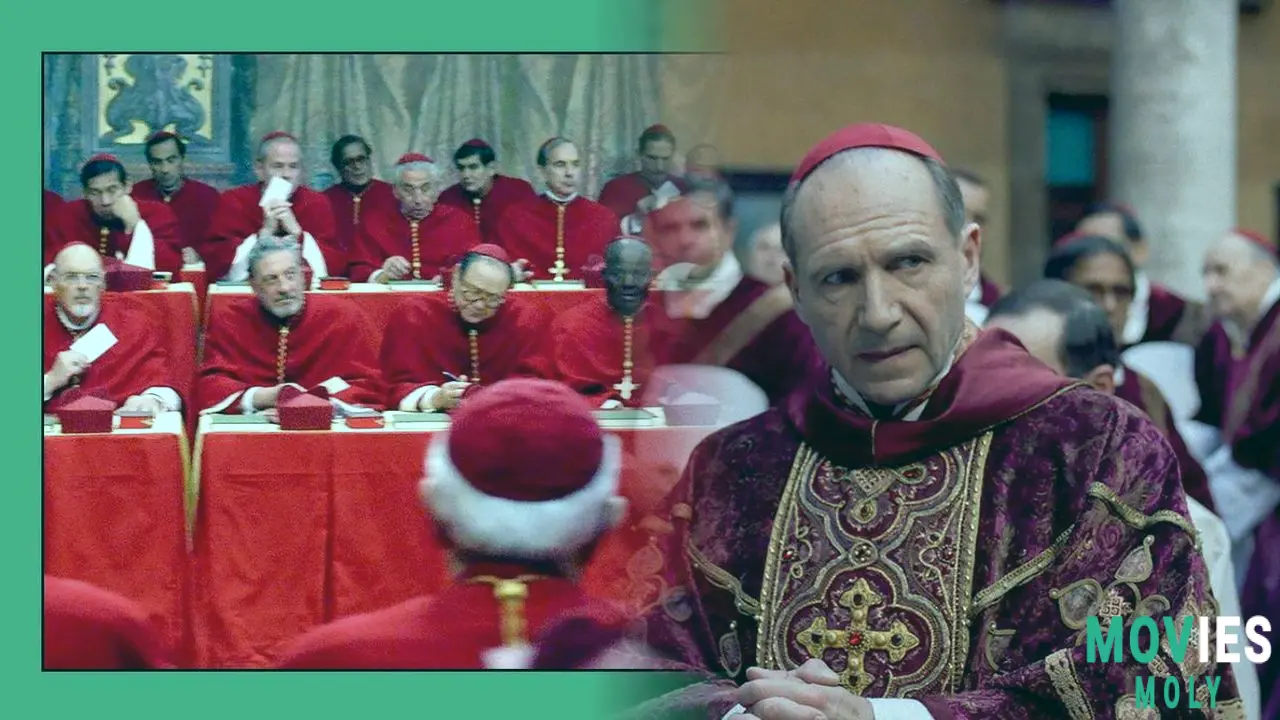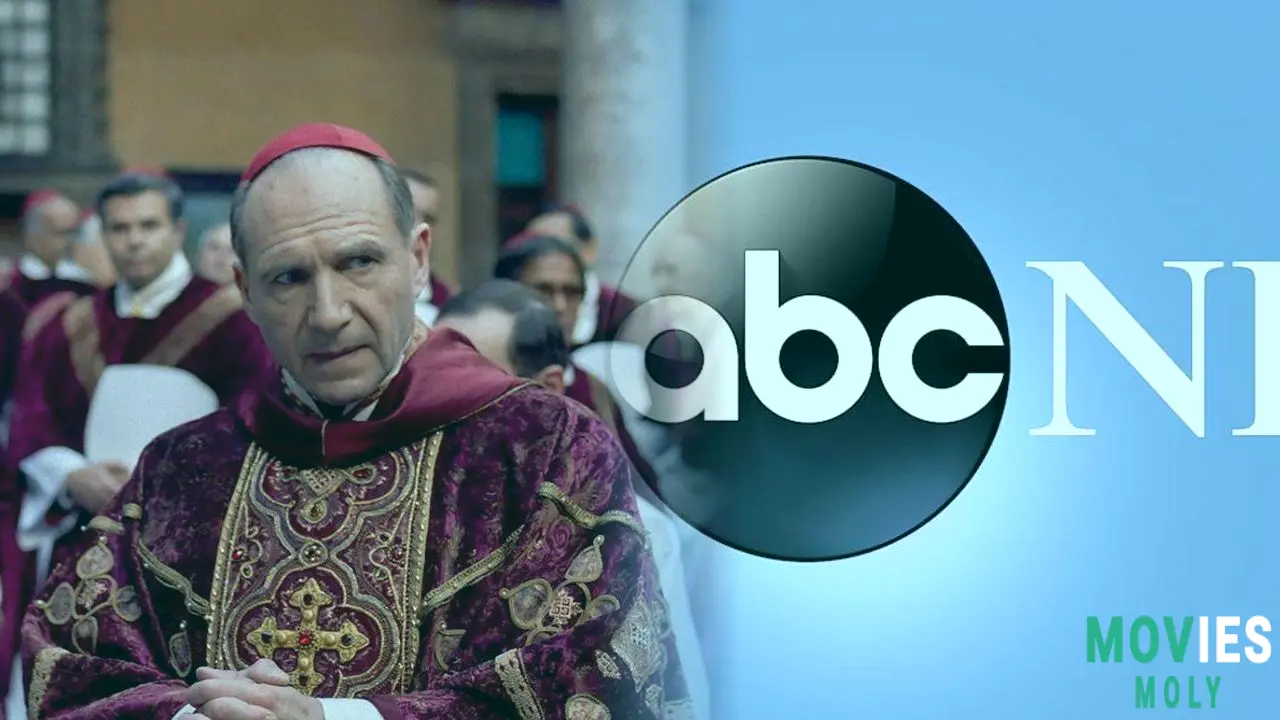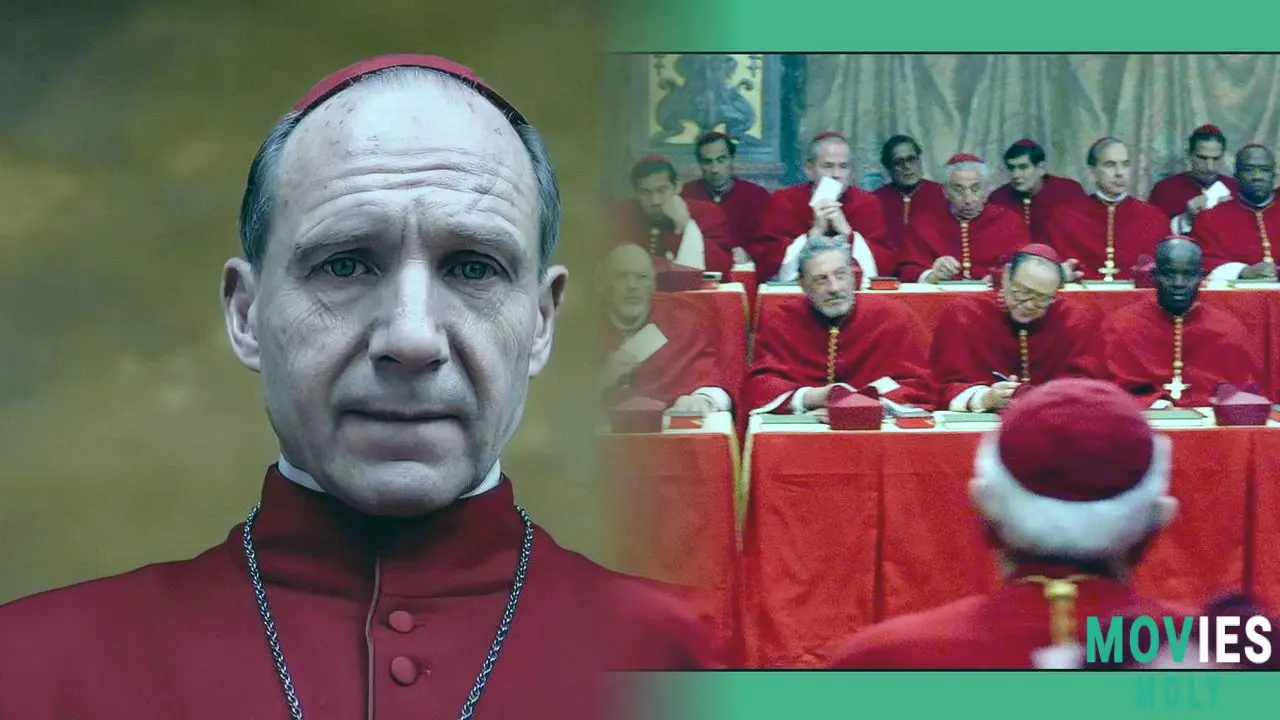Ralph Fiennes, an actor whose career seems tethered to the gravest of gravities—from the tortured Amon Göth in Schindler’s List to the introspective M in the James Bond franchise—finds a new kind of solemn battlefield in Conclave. The Oscar-winning film, now circling back into cultural conversation following the real-life death of Pope Francis, casts Fiennes as Cardinal Thomas Lawrence, the dean of the College of Cardinals. In a role that blends the weight of ecclesiastical tradition with the sharp edge of internal investigation, Fiennes anchors a story about faith, power, and the human cracks within an ancient institution.
Ralph Fiennes’ Cardinal Lawrence is a study in ritualistic restraint and hidden passionMuch like the Vatican itself—a place where every gesture is loaded with centuries of meaning—Fiennes’ portrayal of Cardinal Lawrence is meticulously controlled. As he once noted in an interview with the National Catholic Reporter, Fiennes was obsessed with getting the rituals right. For an actor who’s played roles across the spectrum of emotion and action, there’s something compelling about channeling energy into precision: how a cardinal kneels, how he clasps his hands, how silence becomes its own language.
But Cardinal Lawrence isn’t just a ceremonial presence. He’s a man wrestling with doubt. Early in Conclave, Lawrence reveals he had considered stepping down from his role before the pope’s death, signaling a crisis of faith that runs beneath his composed exterior. As the conclave unfolds and secrets surface—like hidden scandals among papal candidates and the shocking revelation of a terrorist attack on the Sistine Chapel—Lawrence transforms from reluctant overseer to pivotal gatekeeper of the Church’s future.
The film’s fictional conclave echoes real Vatican politics with masterful subtlety

While Conclave is rooted in fiction, its portrayal of the Vatican’s election process is eerily close to reality. Based on Robert Harris’ novel and directed by Edward Berger, the film was crafted with input from Vatican consultants and drew extensively from real-world protocols. The cardinals’ attire, though more colorful than modern standards, is designed to reflect personality as much as rank—a clever storytelling device that helps differentiate characters in the visually uniform world of the Church.
The power dynamics inside the Sistine Chapel mirror those of any high-stakes political arena. Traditionalists clash with progressives, old guard factions square off against voices from the Global South, and every vote carries the weight of millennia. It’s in this crucible that Cardinal Vincent Benitez—a controversial “cardinal in pectore” with a secret past—emerges as an unlikely candidate for the papacy. His name? “Innocent.” His message? Change, led not by force but by love.
The twisty climax underlines Fiennes’ character’s journey from doubt to quiet hope

Without giving too much away to anyone not yet through the film, the final act of Conclave is less about explosive reveals and more about internal acceptance. When Lawrence learns of Benitez’s intersex condition—a medical and theological gray area never before explored in papal fiction—he chooses discretion over defiance. This moment, small but seismic, redefines the film’s message: faith isn’t about rigid definitions; it’s about embracing what “God made me” means in the modern world.
For Fiennes, who described his character’s homily on doubt as illustrative of his own beliefs, this is a role that lets him explore flexibility vs. rigidity. Cardinal Lawrence’s final scenes, walking back to his quarters with a faint but genuine smile at the sight of nuns on the Vatican grounds, suggest a man who’s not only been reconciled with his faith but rejuvenated by it.
Conclave’s timing elevates Fiennes’ performance into real-world relevance
With Pope Francis’ passing prompting an actual conclave to elect his successor, Conclave has moved from hypothetical to culturally resonant. The film’s depiction of the secretive, sacred process—complete with electronic sweeps of the Sistine Chapel and the threading of ballots for preservation—mirrors what will soon happen in Vatican City. And though the real Church may be less cinematic in its politicking than Berger’s film suggests, the human element remains: cardinals from across the globe, with different visions for the Church’s future, must find common ground.
It’s in this space between tradition and transformation that Ralph Fiennes’ Cardinal Lawrence lives. Not as a hero, not even as a protagonist, but as a guardian of the process—a man who understands that the next pope may not change the Church, but must at least be allowed to try.




